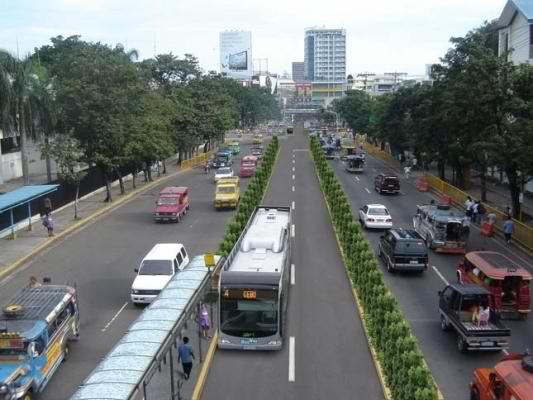President Aquino – acting as chairman of the National Economic Development Authority (Neda) – has approved the P10.6-billion bus rapid transit (BRT) project in Cebu City.
Funded by loans from Agence Française de Developpement and International Bank for Reconstruction and Development-World Bank, the Cebu City BRT will be completed by 2017.
The BRT is part of a raft of projects costing a total of P62.3 billion that the President and Cabinet officials approved after a meeting that lasted close to midnight Thursday in Malacañang.
“We are determined to speed up the implementation of these vital projects, given the fact that by the end of this month, this administration will have exactly only two years left of its term,” Communications Secretary Herminio Coloma Jr. told reporters yesterday.
The Neda Board approval will allow the Department of Transportation and Communications (DOTC) to start the bidding process for the conduct of the BRT’s detailed engineering study that will determine its actual cost.
Rafael Yap, executive director of the Cebu City Integrated Traffic Operations Management (Citom), said that pending completion of the detailed engineering study, the DOTC will also start working with the city government in implementing the project’s social management that will include the acquisition of affected properties and the determination of how the government will deal with jeepney drivers who may be displaced by the roll out of the BRT.
The conduct of the detailed engineering study will take eight months while the actual project implementation will take two years to complete.
Aside from having a modern mass transport system, the city will also have a new traffic signal system installed to replace the existing ones which the city acquired in 1991.
“It’s part of the BRT project for the city to have an upgraded traffic signal system. The BRT cannot operate without its traffic light system,” he said.
‘Dream Come True’
The BRT system for Cebu City was first proposed by former mayor Tomas Osmeña in the 1990s, but it was in 2008 when the Department of Transportation and Communication (DOTC) began formal planning.
“The seed I planted sprouted! You know what it feels like to see a dream come true? This is it!” he said in a text message to Cebu Daily News.
“I started reading about the BRT in 1990, went to Curatiba, Brazil in 1995. Now the whole world has adopted what is known as the BRT. We could have been the first to use it in Asia and the Pacific region over 20 years ago. And it will take another five years to make it operational. But I still have a reason to celebrate.”
